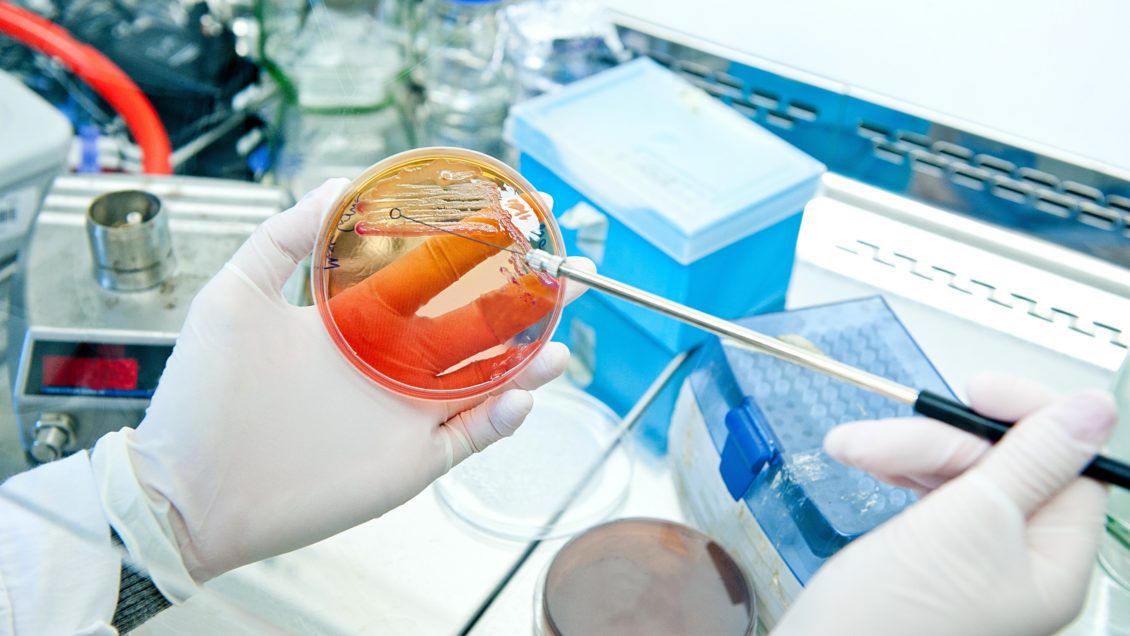Seifert Scholars is newest program to support undergraduate genetics and biochemistry students
Molly Anderson spent her summer in a lab at Clemson University’s Eukaryotic Pathogens Innovation Center (EPIC) researching how the human innate immune system combats fungal infections.
Sadie English studied the parasite that causes African sleeping sickness to find better drugs to treat the disease’s debilitating and even deadly effects.
Kylee Fulton tried to genetically manipulate Naegleria fowleri, commonly known as the brain-eating amoeba, that can cause a rare and usually fatal infection.
They are the first Seifert Scholars for Undergraduate Research. The Seifert Scholars program allows up to three undergraduate researchers to spend six weeks of the summer researching in a Eukaryotic Pathogens Innovation Center lab.
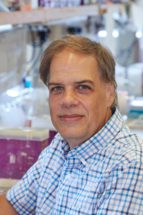
“For an undergraduate, doing research provides so much value to their education. They learn so many things from their coursework that they can then apply in the laboratory,” said Kerry Smith, director of EPIC and a professor in the Department of Genetics and Biochemistry. “It has such an added value to them. I know it plays a significant role in them being accepted into graduate school or medical school. In some cases, that research provides an opportunity to go to a higher-level program than they would have been accepted into with just their coursework.”
Value of undergraduate research
Susan and Avery Seifert know the value of undergraduate research at Clemson.
Their daughter, Clarice Seifert Clemmens ’05, conducted research in the lab of biochemistry professor Jim Morris, a leading expert on the Trypanosome parasite that causes African sleeping sickness. She is now a successful pediatric otolaryngologist and associate professor at the Medical University of South Carolina. Their son, Bryce Seifert ’07, conducted research in Alumni Distinguished Professor Julia Frugoli’s lab, which focuses on plant molecular genetics in the legume model system Medicago truncatula. He is now a clinical molecular geneticist at the National Institutes of Health’s National Institute of Allergy and Infectious Diseases.
“Both Clarice and Bryce are where they are today because of the research opportunity they got at Clemson. It opened doors for them to go to graduate-level research and education,” said Susan Seifert. “We’ve been very fortunate and decided to create an opportunity for other students to do this.”
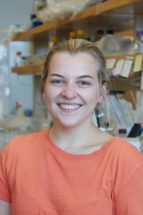
Anderson, a senior biological sciences major from Fenton, Michigan, said she plans to go to dental school and become an orthodontist. Her summer research involved the fungal pathogen Aspergillus fumigatus, a common mold that lives indoors and outdoors, and the immunosuppressive drug dexamethasone. She said the opportunity to do undergraduate research played a role in her decision to attend Clemson.
“I knew I wanted to go out of state, and I knew I wanted to go somewhere that had a strong science program. I found that at Clemson. Undergraduate research has always been a priority for me and Clemson offers a lot of ways to get involved,” she said.
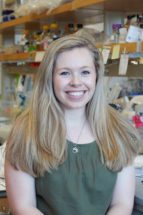
English, a senior biochemistry major from Columbia, said she is hoping to earn departmental honors. She’s organizing an independent research project and will write a thesis. After she graduates from Clemson, she hopes to attend medical school. English’s research involved trying to determine if two proteins found in the parasite that causes African sleeping sickness are potential targets for the creation of more effective, safer drugs to treat the debilitating illness.
“Research is an essential component because it’s going to make me more competitive in the application process. I also want to pursue research during medical school because it allows you to improve your critical thinking skills and learn how to be more independent in troubleshooting, which are skills that are needed to be a competent physician,” said English, who is a third-generation Clemson student. “I think the research I’ve done here is going to set me up nicely to pursue that path.”
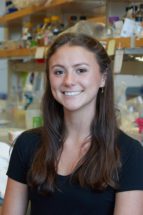
Fulton, a biochemistry major in her third and final year of undergraduate study, said doing research will allow her to understand more of the class material she studies next year. The research she did as a Seifert Scholar centered on developing a system of RNA interference that would cause the brain-eating amoeba to temporarily produce less of an enzyme that researchers believe is vital for its survival.
Fulton, who is considering getting a Ph.D., hasn’t decided her future career plans, but she said undergraduate research has made her a competitive candidate for whichever path she takes.
“Sometimes all it takes is a little spark and a fire starts,” Avery Seifert said. “That’s what I consider undergraduate research.”
Other support
In addition to their gift to support undergraduate research, the Seiferts are funding annual scholarships for students enrolled in genetics or biochemistry.
Other donors also invest in scholarship and award programs benefitting genetics and biochemistry students.
The Champ M. ’39 and Alma Brooks “Brooksie” Young Jones Scholarship Endowment supported five students majoring in genetics in 2020-21. Champ Jones, Sr. graduated from Clemson College in 1939. He earned a master’s degree in agronomy from Cornell University. After serving in the Army during World War II, Jones returned to Clemson to start a 34-year teaching career. The Joneses are fondly remembered at Clemson by generations of students, and their sons are honored to have this scholarship in their name.
The Gianni Mongelluzzo Memorial Scholarship Endowment, started by Mongelluzzo’s parents in 2020, provides scholarships for genetics and biochemistry students. He was a sophomore studying genetics and biochemistry when he died in 2019. His family and friends support this scholarship fund to keep his memory alive at Clemson.
The Dr. William R. Marcotte Outstanding Undergraduate Research Award honors the former department chair and long-time faculty member Bill Marcotte. The award, funded by gifts from the faculty and alumni, is given to the top undergraduate researcher in the department.
The College of Science pursues excellence in scientific discovery, learning and engagement that is both locally relevant and globally impactful. The life, physical and mathematical sciences converge to tackle some of tomorrow’s scientific challenges, and our faculty are preparing the next generation of leading scientists. The College of Science offers high-impact transformational experiences such as research, internships and study abroad to help prepare our graduates for top industries, graduate programs and health professions. clemson.edu/science
Get in touch and we will connect you with the author or another expert.
Or email us at news@clemson.edu

